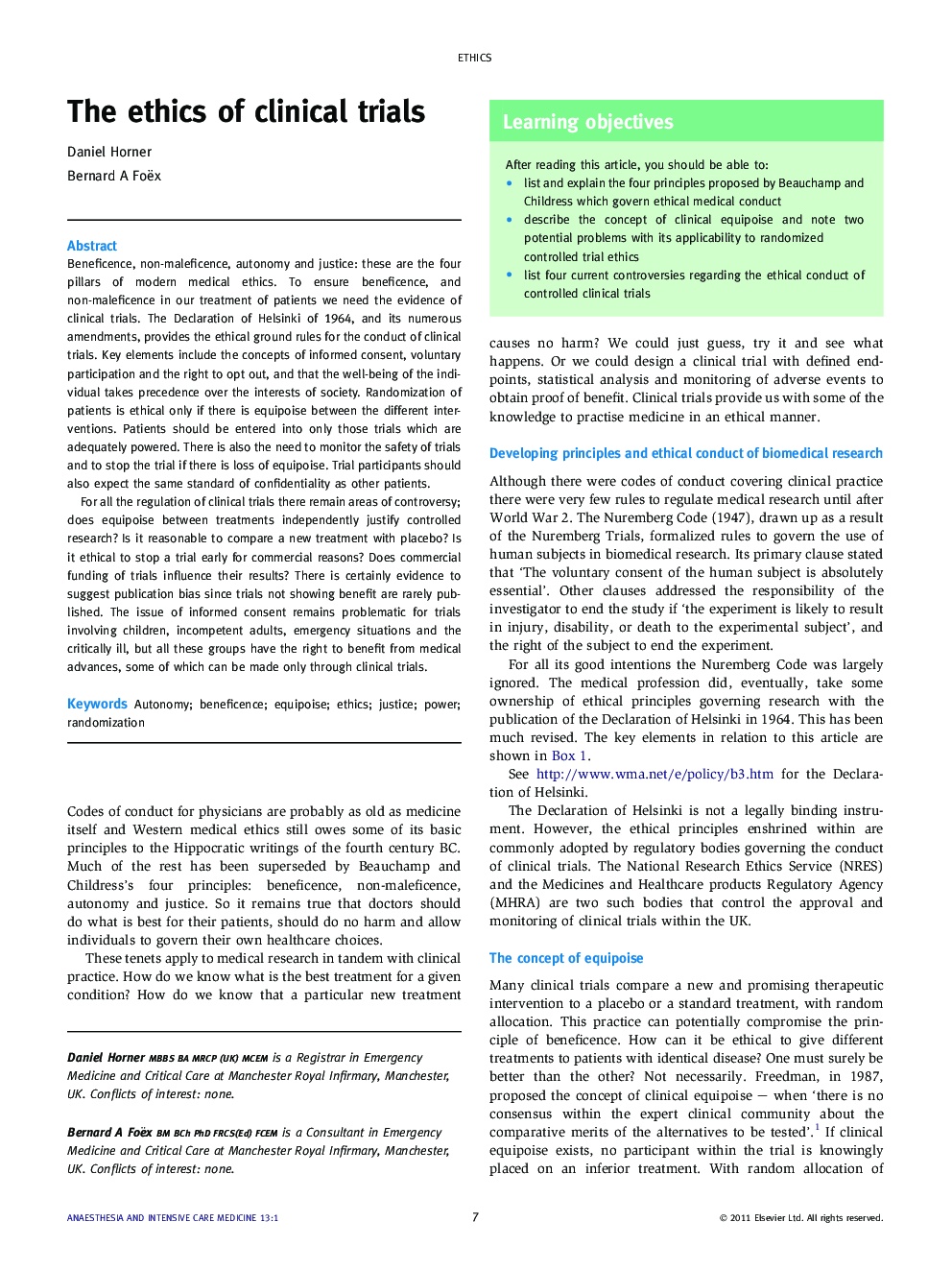| Article ID | Journal | Published Year | Pages | File Type |
|---|---|---|---|---|
| 2742986 | Anaesthesia & Intensive Care Medicine | 2012 | 4 Pages |
Beneficence, non-maleficence, autonomy and justice: these are the four pillars of modern medical ethics. To ensure beneficence, and non-maleficence in our treatment of patients we need the evidence of clinical trials. The Declaration of Helsinki of 1964, and its numerous amendments, provides the ethical ground rules for the conduct of clinical trials. Key elements include the concepts of informed consent, voluntary participation and the right to opt out, and that the well-being of the individual takes precedence over the interests of society. Randomization of patients is ethical only if there is equipoise between the different interventions. Patients should be entered into only those trials which are adequately powered. There is also the need to monitor the safety of trials and to stop the trial if there is loss of equipoise. Trial participants should also expect the same standard of confidentiality as other patients.For all the regulation of clinical trials there remain areas of controversy; does equipoise between treatments independently justify controlled research? Is it reasonable to compare a new treatment with placebo? Is it ethical to stop a trial early for commercial reasons? Does commercial funding of trials influence their results? There is certainly evidence to suggest publication bias since trials not showing benefit are rarely published. The issue of informed consent remains problematic for trials involving children, incompetent adults, emergency situations and the critically ill, but all these groups have the right to benefit from medical advances, some of which can be made only through clinical trials.
